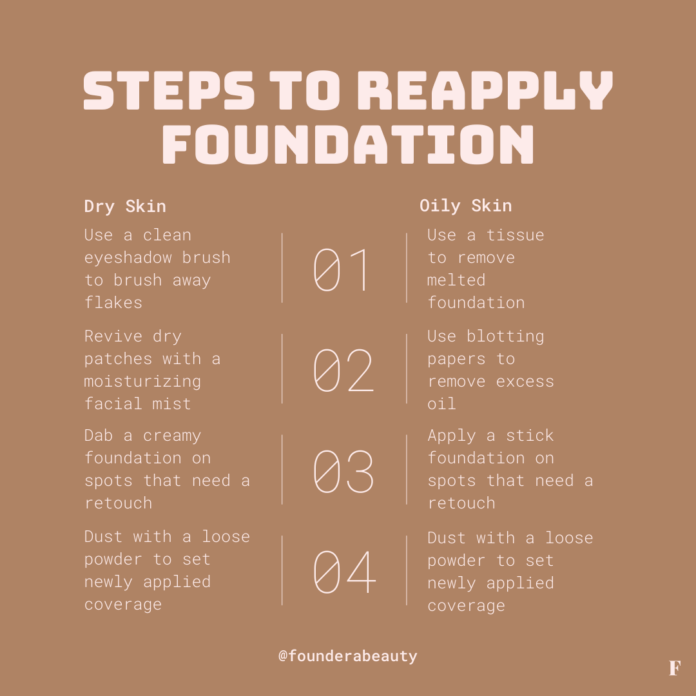- Prep and Prime:
- Cleanse your face with an oil-control cleanser.
- Apply a lightweight, oil-free moisturizer to hydrate without adding excess oil.
- Use a mattifying primer, focusing on the T-zone (forehead, nose, and chin) to control shine and create a smooth base.
- Choose the Right Foundation:
- Select an oil-free, matte foundation that is long-lasting and provides full coverage.
- Avoid dewy or luminous finishes as they can make the skin look more oily.
- Application:
- Use a damp makeup sponge or a brush to apply the foundation. Start from the center of the face and blend outwards.
- Build coverage gradually to avoid a cakey look.
- Set and Finish:
- Set the foundation with a translucent setting powder, concentrating on oily areas.
- Use blotting papers throughout the day to control excess oil without disturbing the makeup.
- Finish with a setting spray that has mattifying properties for long-lasting wear.
For Dry Skin
- Prep and Prime:
- Cleanse with a hydrating cleanser to remove impurities without stripping the skin of its natural oils.
- Apply a rich, hydrating moisturizer and let it absorb completely.
- Use a hydrating primer to create a smooth, moisturized base.
- Choose the Right Foundation:
- Opt for a hydrating or luminous foundation that adds moisture and a radiant finish.
- Avoid matte formulas as they can accentuate dryness and flakiness.
- Application:
- Use a damp makeup sponge or a brush to apply the foundation, starting from the center of the face and blending outwards.
- Apply in thin layers, building up coverage where needed to avoid a heavy, cakey appearance.
- Set and Finish:
- Use a light dusting of translucent setting powder only where necessary, such as the T-zone, to prevent excess shine.
- Avoid heavy powders which can make the skin look even drier.
- Finish with a hydrating setting spray to lock in moisture and give a dewy finish.
By following these steps, you can achieve a smooth and long-lasting foundation application tailored to your specific skin type.

